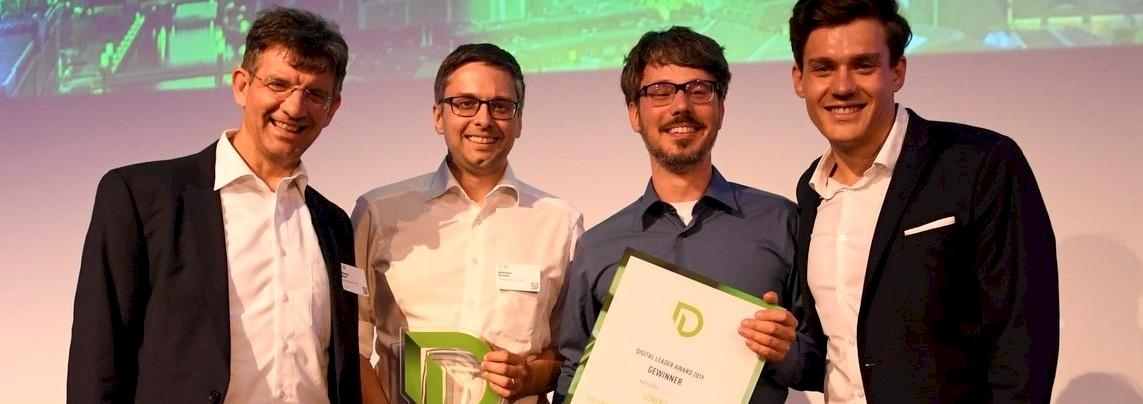The Federal Environment Ministry and the Federal Association of German Industry BDI have honored Lorenz as a national pioneer for smart metering and circular economy with one of the highest company awards in Germany.
The Federal Environment Ministry and the Federation of German Industries have awarded Lorenz the German Innovation Prize for Climate and Environment. The development and intelligently networked production of fully reusable smart meters as well as their return and remanufacture as part of a profound circular economy concept are recognized. Environment Minister Svenja Schulze praised the award winners.
The German Innovation Award for Climate and Environment (IKU) is one of the highest awards a company can receive in Germany. The Federal Ministry for the Environment, Nature Conservation and Nuclear Safety (BMU) and the Federation of German Industries (BDI) honor national role models from business and research every two years. In seven categories, the organizers honor innovative technologies, techniques, procedures, processes, products, services and business models that show new ways to protect the climate and the environment. The prize is endowed with a total of 175,000 euros.
From over 140 companies and research institutions, the high-ranking jury headed by Prof. Ottmar Edenhofer (Director of the Potsdam Institute for Climate Research PIK) chose Lorenz GmbH & Co. KG for first place in the “Environmentally friendly products and services” category. The award is given to a profound circular economy concept. The smart water meters from the medium-sized family business enable precise flow measurement, efficient and secure data transmission and intelligent analysis in water networks. This can prevent water waste and significantly simplify the processes of water suppliers, municipalities and metering services.
Since the water meters are made of high-quality materials and attention is paid to longevity and reusability throughout development and production, Lorenz can take them back after use and replacement for calibration purposes and reuse them in their entirety or in components to the highest degree. This saves hundreds of tons of raw materials and millions of kilowatt hours of electrical energy every year, as well as the associated environmental impacts and CO2 emissions. Thanks to the material cost savings, production in Germany remains competitive compared to low-cost manufacturers from low-wage countries.
After the award ceremony could not take place in Berlin as planned due to the coronavirus, Federal Environment Minister Svenja Schulze honored the award winners in a video message.









